Læra Institute Steering Committee member Astri Dankertsen was recently interviewed for the first Northern Notes newsletter of the new Norwegian presidency of the International Arctic Social Sciences Association (IASSA). Read the interview below or as originally published in Northern Notes 56.
Indigenous investigator: Astri Dankertsen
By Thoralf Fagertun (Nordland Research Institute)
Astri Dankertsen is an associate professor in Sociology at Faculty of Social Sciences, Nord University. She is the leader of the Division for Environment, International Relations, the Arctic and Security at Faculty for Social Sciences at Nord University, and a member of the Research Group for Gender, Ethnicity and Equality (KEL). Her research is primarily focused on Sami and Indigenous issues, especially identity, youth, urbanization, decolonization and perspectives of Indigenous people. Her research group has recently started up the project “Indigenous homemaking as survivance: Homemaking as cultural resilience to the effects of colonization and assimilation (INDHOME)”, financed by The Research Council of Norway.
What do you think is important for securing sustainable development in the Arctic?
It is important to have a general focus on sustainability, which take into consideration both climate, nature and people living in the Arctic, including Indigenous people. Far too often, we see sustainability used as an argument for drastic encroachments on nature, with severe consequences for people and animals already living there. Here in Norway, a very relevant example is the conflicts between the Sami population and the development of wind power industry. These days the strong forces of business frequently defeat the needs of both local inhabitants and nature.
What would the role of social science be in this development?
It is important that we as social scientists contribute to solutions for how to achieve a sustainable development that doesn´t compromise societies and cultures already existing here in the north. We must contribute both to theoretical and empirical knowledge about the processes guiding sustainability, and at the same time bring practical solutions to the table. It is also important to highlight how sustainable development doesn´t happen independent of existing power structures both in Norway and the rest of the world. Who benefits form the development and who must make sacrifices?
How do you envision the Arctic in 30 years?
Hopefully we have created a society more conscious of the cultural diversity that characterizes the Arctic and are aware of how indigenous people living in the north must be a part of decision-making processes about issues concerning them. We must to a larger degree recognize that the high north consists of places where people live their lives, and where important heritages of language and culture exist and must be conserved.
What role, in this picture, should the IASSA undertake in the years to come?
IASSA is an important platform for bringing attention to social scientific knowledge in and about the high north. I am looking forward to seeing how Nord University and Nordland Research Institute can contribute to the further development of IASSA, and how this work can impact us as research institutions.

